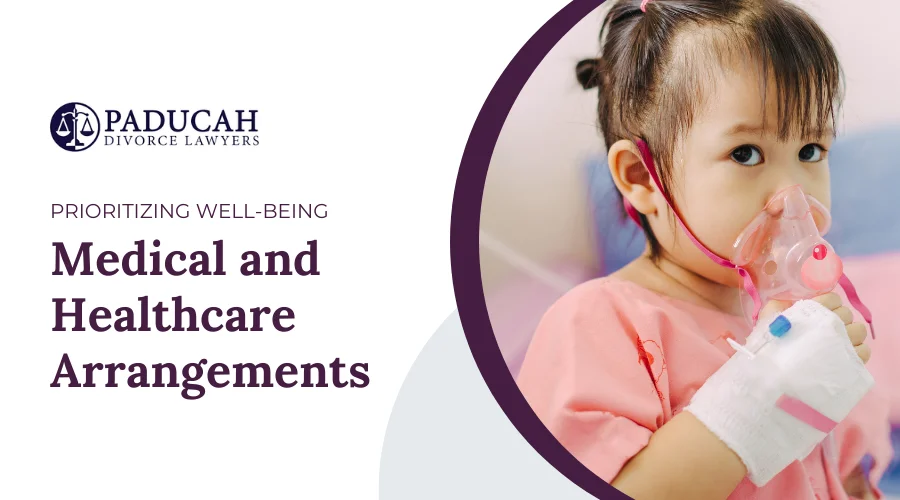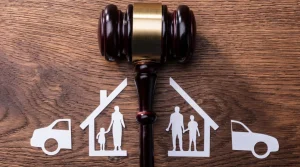In our busy world, you and your family must have the right medical plans for good health. This blog will talk about basic things like medical insurance, problems with medical bills when you don’t have insurance, and how knowing child support laws can help keep you healthy and financially secure. Elevate your knowledge about our legal services by scheduling a complimentary initial consultation with the Paducah Divorce Lawyer.
Insurance and Uninsured Expenses
Medical and healthcare costs are a part of life, and being ready for them is essential. While medical insurance helps many people, it might only cover some things. If there are unexpected situations or gaps in coverage, regular healthcare needs can become sudden financial problems. Understanding uninsured expenses is essential for planning your healthcare.
It means knowing what your insurance doesn’t pay for so you can be ready for those extra costs. This helps you care for your money and handle unexpected medical bills better. So, it’s not just about having insurance but also understanding the other costs and being prepared for them.
Uninsured Medical Expenses and Child Support Laws
Understanding how uninsured medical costs and child support laws work together is crucial, especially for people who have dependents. In different places, laws about child support often say that both parents should share the responsibility for medical costs that insurance doesn’t cover. This legal rule ensures that a child’s health needs are taken care of, even if one parent doesn’t have insurance or doesn’t have enough.
These laws act like a safety net, making both parents help with the child’s medical care. This connection highlights how important it is to know and follow the rules, creating a supportive environment for the health and well-being of dependents.
What are ‘Uninsured Medical Expenses’?
Uninsured medical expenses are different costs that insurance doesn’t pay for. This includes deductibles, where you have to pay a certain amount before insurance helps, and co-payments, which are set amounts you pay for specific services.
Also, non-essential services like elective or cosmetic treatments fall into this category. Knowing about these things is essential for planning your money well. It helps you get ready for extra costs that might come up. Understanding these medical expenses gives you the power to handle healthcare costs better and be more prepared for financial challenges.
Responsibility for Uninsured Medical Expenses
Deciding who pays for medical costs not covered by insurance can be tricky, especially in divorces or separations. Critical legal agreements might say how these costs will be shared. Talking openly and understanding each person’s financial responsibilities is essential to prevent confusion and arguments.
In divorces, where emotions can be strong, transparency about how medical costs are shared is vital. Good communication helps keep a good relationship and reduces the chance of legal issues. Talking openly makes it simpler to deal with financial responsibilities, especially regarding healthcare expenses.
Failure to Pay Uninsured Medical Expenses
Not taking care of medical bills not covered by insurance can lead to big problems. If you don’t pay them quickly, it can hurt your credit score and cause financial trouble. The situation might worsen and lead to legal action, making things more challenging.
Taking care of these medical bills isn’t just about money; it’s a smart move to avoid long-term problems. Actively dealing with these bills is crucial for stabilizing your finances and avoiding legal issues. It highlights the importance of promptly dealing with unpaid medical bills to prevent potential future problems.
Expensive Non-Emergency Care
People are often surprised by how much non-urgent medical care can cost. Unlike urgent treatments, insurance might not cover all the costs of non-urgent care, leaving people with a hefty bill. To handle this, it’s essential to be proactive and understand how insurance works.
Finding cheaper alternatives becomes significant, helping people make intelligent choices about their healthcare. Being proactive means checking what insurance covers, looking for other options, and talking openly with healthcare providers. This careful approach gives people the power to manage healthcare costs well and understand the ins and outs of how to pay for medical care.
Staying on Good Terms (and Out of Court)
Having good relationships and avoiding legal problems when dealing with medical expenses is essential. Talking openly with healthcare providers helps create a cooperative atmosphere, ensuring everyone understands each other. Knowing about insurance and following legal agreements also helps a lot.
Doing things ahead, like updating on money responsibilities and dealing with concerns quickly, stops problems from worsening. By staying friendly with everyone involved, you can help find a solution without going to court, saving time and money. This team approach makes things easier and creates a positive and supportive environment for figuring out healthcare money issues.
Taking care of yourself goes beyond just staying physically healthy; it also includes looking after your money and understanding the rules. Knowing about medical insurance, the costs not covered, and child support laws, you can handle healthcare better.
Being informed, talking openly, and doing things ahead will keep you healthy and make your future more secure. Always remember, knowing what’s going on gives you the power to make good decisions when it comes to your health and money.
Learn more about Travel and Relocation Considerations in Child Custody Cases






